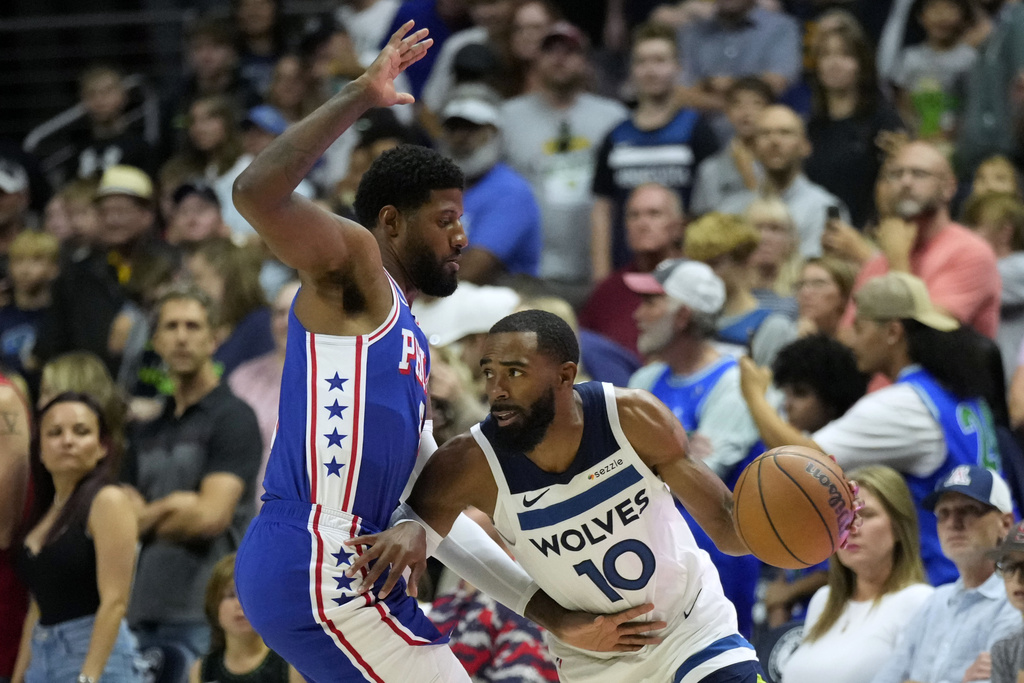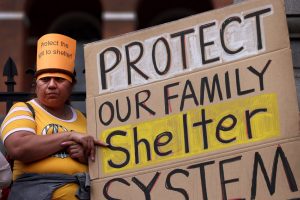
Conley’s Corner: The Trade Game
Editor’s note: Mike Conley is one of the best sources of information in the NBA.
Entering his 18th NBA season, the just-turned-37-year-old Timberwolves point guard has seen it all, and has the knowledge and willingness to explain what has taken place and what’s to come with the media and, thus, the fans. That breadth of insight and analysis extends from on-court Xs and Os to team dynamics and development.
Conley is just as good at explaining why two teammates came to blows in the middle of a timeout as he is on what the team needs to do to decode a switch-heavy defense.
So who better to sit down with twice a month to tackle different topics ranging from the Timberwolves to the NBA at large to, well, Mike Conley, than Conley himself.
This is the first installment of Conley Corner, Volume 2.
TRADE GAME
Mike Conley was sitting in his house, playing video games in February 2023. Joining him online were then Utah Jazz teammates Malik Beasley and Kelly Olynyk.
Beasley, in the middle of the game, said ‘Hold on, hold on’ into his headset.
Something was up.
The guard stepped away from his console, and Conley could hear mumblings of a phone conversation. When Beasley hopped back onto his headset, he delivered the news.
“Man, it sounds like I’m going to L.A.” Beasley said. “Mike, you’re going to Minnesota.”
Conley was flabbergasted. The video games were done for the day.
“I was like, ‘What? I’ve never heard that, not one day of any trade rumor or nothing,’” Conley said. “I heard everything other than Minnesota. So I’m thinking, ‘Ain’t no way. My agent or somebody would’ve called or told me that.’”
Conley immediately reached out to his agent, who noted he was trying to get ahold of folks in the Jazz organization to find out what was happening. Conley didn’t know if the news was real. He was scrambling. And worse yet, the Jazz had a game that night. And, without confirmation of a trade, Conley had to prepare to play. So he went to the arena and went through the motions of his warmups.
Finally, right before the game, Jazz basketball boss Danny Ainge pulled Conley out of the locker room and told the veteran “Hey,’ you’re going to Minnesota.”
The floor general noted it takes “awhile” to process such a move. Your life is literally turned upside down. Prior to the trade, he was planning on taking his kids to school the following morning. Instead, he was on a bus at 8:30 a.m., heading to the airport to head to his new team in the next city.
“It was like bang-bang. New team, here you go,” Conley said. “That was a little bit different for me.”
So he knows what it’s like when teammates – outgoing or incoming – are in the same position.
When a trade is made like the one where Minnesota dealt Karl-Anthony Towns to New York a few days before the start of training camp, there is always an initial period of intrigue.
After such a move, Conley might call or text Anthony Edwards or another teammate to confirm the news he likely consumed on social media and get everyone’s thoughts on the transaction.
Usually, after a couple days have passed and the phones of players involved in the trade have stopped blowing up, Conley will shoot a message welcoming his new teammates to the city and offering any assistance he can provide.
Players are like fans in the respect that they always think about others around the league and who they’d like to play with. Conley noted those wishes often come to fruition, just not when you’d expect it. Like when Conley arrived in Minnesota, Towns told the guard he’d always wanted to play with him.
“I’m like, ‘Yeah, I’m like 38 now. There’s a difference between 38 and 25,’” Conley joked. “I think that ends up happening. You end up getting to be around the guys. I think Donte DiVincenzo was a guy that I really admired from afar and was like, ‘Man, that’d be really cool to be his teammate.’ Joe Ingles was a guy like that before I got to Utah. I like guys who know how to play. You get those opportunities and you take advantage of it in the window that you have. But in the beautiful world of it all, if you could, it’s like, ‘Oh, in my prime, I’d love to have you, you, you, you and you all at the same time.’”
But you’re never thinking about the players your team will have to trade away to make those acquisitions occur. It’s not easy to lose existing teammates. Conley said the trade that shook him the most was when Marc Gasol was traded from Memphis to Toronto in 2019, when Conley was still with the Grizzlies. Those two were running mates for years.
“It wasn’t like a shock, but it’s also (it’s something where) you’re not prepared for it until it happens type of thing,” he said. “When it happened I was like, ‘Damn. No more Marc. That’s crazy.’ It changed the way I looked at the game and who I’m with now and what we have to do, and my game and ability and how I have to improve it. So it was just kind of a culture shock in that aspect of it.”
But when you get traded, Conley sit it hits you like “a ton of bricks right away.” When it’s a teammate who’s heading out, Conley said that loss is a slow burn.
“You just constantly sprinkle little bits in there when you’ll do something in the locker room and be like, ‘Oh, man, I remember when so and so would be right there,’” he said.
Certainly, players don’t agree with every move a front office makes. Conley hasn’t always in his career. But he realized long ago that the business of basketball and the game are closely intertwined. And sometimes things won’t make sense on the surface, but there’s always a rhyme or reason for every move.
“It’s easy when you look at trades and say, ‘Oh, we’re going all in. We traded all our picks and we’re just doing these moves to win.’ Then everybody is excited about everything you do,” he said. “And then there’s some that mix in there. You take it as it goes. You can’t control any of it, so you control what you can control and try to make the best of what group you have in that year.”
Days after the Towns trade, Wolves basketball boss Tim Connelly said the very idea of “trading” players is “gross.” Conley concurred there’s nothing good about the concept. But he noted there is a right way for an organization to handle it. For instance, when Gasol was traded from Memphis, the organization also informed Conley it would look at potential deals for him at that deadline, and then again in the ensuing offseason.
“I was like, ‘OK, cool. I appreciate that heads up,’” Conley said.
It allowed him to inform his family that, at most, they had a few more months in Memphis and a move was imminent. So Conley, his wife and children were able to savor their “lasts” in the area before he was eventually traded to the Jazz that summer.
“That’s the right way to do it,” he said. “You give people the opportunity to dot the ‘I’s and cross the ‘T’s and stuff.”
Conley appreciates the way Minnesota does its business.
“If you look at the way Tim and them handled pretty much all the trades, it’s just complete empathy. They’re really sincere, they’re honest,” he said. “Not everybody gives you that. They’ll tell you one thing and do a different thing, whatever benefits the team, they’re going to do.
“But (the Wolves will) tell you right away like, ‘Hey, man, if you don’t like it, I promise you we’ll get you somewhere else. If you do like it, man, I promise you this is going to be a championship opportunity’ and give you that.
“When I came in, it was that type of sincerity. And I know with KAT and everybody who’s been traded, they’ll make sure you know the details like, ‘Hey, I’m sorry to tell you this, but this is what we’re planning on doing’ or looking at doing. They’ll show up to your house and do it in person. That’s not particularly normal. Normally, you just find out on ESPN or on the ticker or something. I think they’re very much more family-oriented, like really feel about it, in a sense, even though you’re trying to make your team better at the same time.”
Players respect that. And they know roster management is simply part of the business they signed up for.
“We understand that we’re super blessed to be in this position. And, at the end of the day, with trades and movement, you’re still part of the Association, you’re still part of this NBA family, team to team, no matter where it’s at. We’re just super grateful for it,” Conley said. “So every day, I’m going to work as hard as I can individually to be as good as I can to help the team I’m on, but understanding every night I go out there, it’s a showcase for the other 29 teams that’s watching.”
You can read the entire first season of Conley’s Corner here.


